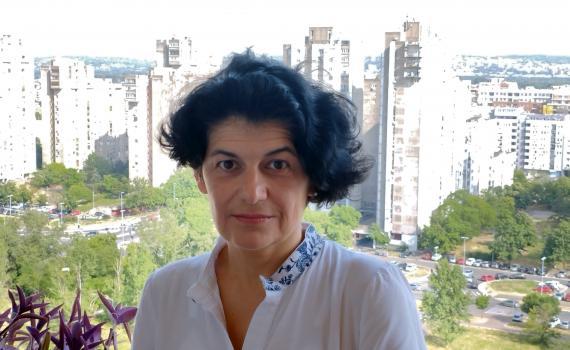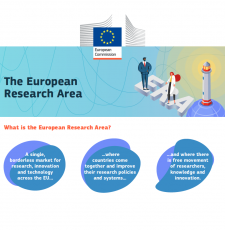
Milica Ševkušić, librarian at the Institute of Technical Sciences of the Serbian Academy of Sciences and Arts and EIFL Open Access Coordinator, shares milestones in the development of open access and open science in Serbia.
What has changed in open access and open science in Serbia?
Back in 2003, the national library consortium in Serbia (Serbian Library Consortium for Coordinated Acquisition - KoBSON) was making its early steps towards the acquisition of scholarly e-resources. KoBSON was officially established a year earlier, with EIFL’s support and funding from Serbia’s Ministry of Science. In those early days, the focus was on access to scholarly literature – getting affordable deals with publishers. The digital infrastructure was still being built, while the transition to online publishing had just started. There were no institutional repositories and few Serbian journals were available online. The local scholarly community was divided between digitization enthusiasts and skeptics.
Twenty years later, the situation is quite different. More than 400 journals (210 in DOAJ / as at July 2023) and more than 12,000 PhD theses in the National Repository of Serbia are in open access. The repository infrastructure (with about 80 institutional repositories or collections) is growing. Most repositories provide content to major international aggregators (OpenAIRE, BASE, CORE), improving the visibility of local research outputs. Serbia has a national open science policy (adopted in 2018) and more than 15 institutional policies mandating open access to publicly funded publications.
For local scholarly publishing open access is the default option. Subscription-based journals are extremely rare and most open access journals don’t charge Article Processing Charges (APCs). The infrastructure for open access book publishing is still lacking, but a significant number of scholarly monographs published by research institutions are available through repositories. Usage statistics reveal that the content in Serbian is read all over the world, as well as that scholarly works are used beyond narrow academic circles, which encourages researchers to open up their publications.
Major improvements are still to be expected in the area of open and FAIR (Findable, Accessible, Interoperable and Reusable) research data and citizen science, which are fairly new topics in the local research community.
The processes and dynamics leading to change
Transition to open science is a cultural change and it requires readiness to respond to challenges and dispel myths. In Serbia, this has been a complex process involving various actors.
Along with open access advocacy and training, the national library consortium in Serbia has actively supported local open access journals and effectively promoted open access to PhD theses.
The open access infrastructure (doiSerbia journal platform and national repository for PhD theses) is partly funded by the ministry responsible for science, which also provides financial support to individual journals. However, the ministry has shown limited interest in funding the development of institutional repositories and has demonstrated varying levels of enthusiasm in promoting open science policies.
The adoption of a national open science policy and the development of the repository infrastructure have been driven by the OpenAIRE (Open Access Infrastructure for Research in Europe) National Open Access Desk.
Research libraries that were initially passive observers now play a vital role in developing institutional repositories and in open science training and advocacy.
Although researchers are still insufficiently interested and engaged, prominent individuals are setting an example, steadily driving the change, especially in the areas of responsible research practices and free and open-source software and open hardware. Through the Open Science Community Serbia, which is part of the International Network of Open Science & Scholarship Communities (INOSC), they can exchange ideas with colleagues from other countries.
“Research librarians have particularly benefited from EIFL’s training programmes and resources, which have introduced them to topics that are not yet included in the formal Library and Information Science training programmes, empowering them to become a major driving force in the development of open science in Serbia.” - Milica Ševkušić, librarian at the Institute of Technical Sciences of the Serbian Academy of Sciences and Arts, and EIFL Open Access Coordinator
MILESTONES
2003
- The International OA Workshop was held in Belgrade in November 2003 in collaboration with EIFL.
2004
- Serbian Citation Index was established.
2005
- EIFL supported the establishment of doiSerbia.
- The OA Citation Indexes Seminar was organized in Belgrade.
2006
- The project Creative Commons Serbia, supported by Wikimedia Foundation, was launched and the Creative Commons licences were translated into Serbian.
2007
- Belgrade hosted EIFL’s General Assembly.
2009
- The first organized celebration of the International Open Science Week in Serbia.
2011
- The University of Belgrade signed the Berlin Declaration.
- The repository of the University of Belgrade was established.
2012
- OA for PhD theses was mandated at the University of Belgrade.
- The Fifth Belgrade Open Access Conference was organized.
- EIFL discussed with Serbian OA journal publishers the feasibility of switching to APCs.
2013
- The repository doiSerbiaPhD was established with the support of EIFL.
- EIFL supported an advocacy campaign at the University of Belgrade, coordinated by the University Library
2014
- OA for PhD theses was mandated and the national repository for PhD theses was established.
2016
- EIFL funded the project Revisiting OA Journal Policies and Practices in Serbia.
- Serbia OpenAIRE National Workshop was organized. It would retrospectively be named as Open Science Days.
2018
- Open Science Platform was adopted.
- National Open Science Portal was established.
- The second edition of the Open Science Days conference was organized.
- The annual conference Application of Free Software and Open Hardware was established.
2019
- Open Science Train-the-trainer Bootcamp in Belgrade was run by the (former) EIFL Open Access Programme Coordinator Gwen Franck on behalf of the FOSTER project.
2020
- Serbia.RDM initiative and website were launched as a result of the project Boosting EOSC readiness: Creating a scalable model for capacity building in Research Data Management, supported by the EOSC Secretariat.
- The National Open Science Portal was redesigned.
- The third edition of the Open Science Days conference was held online.
2021
- The Team for Open Science in Serbia (TONuS) was established.
- The Open Science Community Serbia was founded.
2022
- The fourth edition of Open Science Days was organized.
EIFL’s role in driving change
Over the past 20 years, EIFL has actively supported the transition to open science in Serbia through the activities of country coordinators, expert advice, training and projects.
EIFL’s contribution to scholarly publishing in Serbia has been particularly significant. In 2005, EIFL supported the establishment of doiSerbia as the first online platform for journals: selected journals have DOIs assigned to their articles if they commit to making the content open access. This repository-like platform, hosted and maintained by KoBSON, would become a model for similar ‘publishing units’ at universities in Belgrade, Novi Sad, Niš and Kragujevac, supporting more than 100 open access journals. SCIndeks, a more complex commercial but non-profit open access publishing platform, originally emerged in the same library environment. Together, they help local journals to become more sustainable and independent, owned and led by the scholarly community.
Local scholarly publishing is also supported through training and capacity building. The resources created in the project Revisiting OA Journal Policies and Practices in Serbia are still used with undiminished interest. This project improved the quality of publishing practices and raised awareness of the importance of journal policies, Creative Commons licences and DOAJ (Directory of Open Access Journals).
EIFL was also involved in the promotion of open access to PhD theses by supporting a project that used the approach already tested in doiSerbia: a PhD thesis was assigned a DOI if its author agreed to deposit it in a dedicated open access repository. Although this practice didn’t live beyond the project lifetime, it was a prelude to the national open access mandate and repository for PhD theses.
SHARE / PRINT







